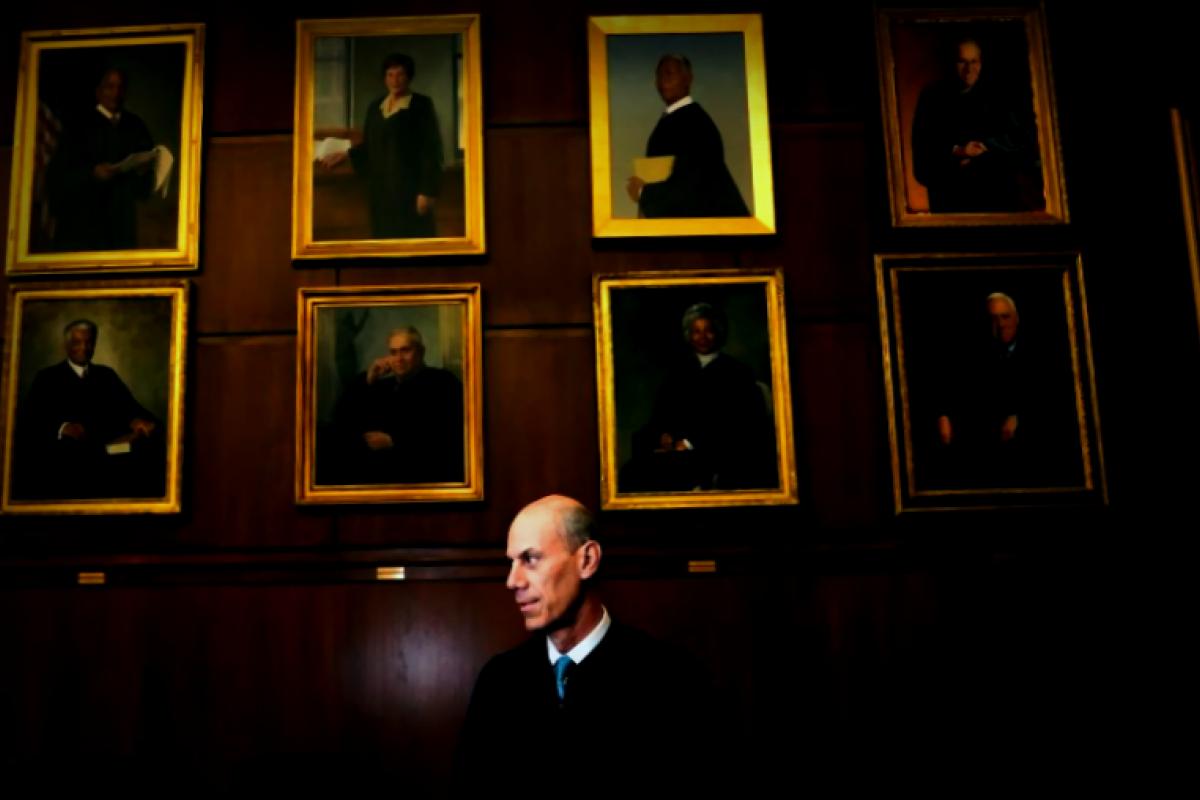A split decision from a federal appeals court on Friday has backed the Trump administration’s stance on the Alien Enemies Act in matters of deportation. This ruling, however, doesn’t entirely silence US District Judge James Boasberg, who is still aiming to penalize individuals that disregarded his earlier directives.
The DC Circuit Court of Appeals turned down a call to reinstate Judge Boasberg’s earlier finding that suggested there was ‘probable cause’ to hold officials in contempt over their failure to comply with orders meant to pause the deportation of suspected Venezuelan gang members.
This latest ruling from the appeals court further complicates Boasberg’s mission to hold Trump administration officials accountable for not adhering to his directives earlier this year.
Nearly three months earlier, a panel of this appeals court eliminated Boasberg’s April contempt ruling, and now the court has decided to maintain that outcome.
Nevertheless, the court’s decision doesn’t leave Judge Boasberg powerless. Thanks to the ruling from the summer, he can proceed with an inquiry into the actions of officials involved in the case. Notably, some in the court emphasized this point in their remarks on Friday.
“The district court is still entitled to compel the government to reveal which decision-makers were behind the actions in question and can weigh their next steps accordingly,” noted several judges from the appeals court.
Lee Gelernt, an attorney with the American Civil Liberties Union representing the migrants involved, reacted positively to the ruling, stating it would allow them to return to Judge Boasberg and present new evidence from a whistleblower who claims the government intentionally disobeyed a court order regarding the handover of Venezuelan detainees to El Salvador.
Earlier this year, the whistleblower—a former Justice Department lawyer—revealed that a top official indicated plans to ignore court orders as part of the administration’s aggressive approach to deportation.
During earlier court proceedings, Boasberg—who was appointed by Barack Obama—expressed his intent to examine the whistleblower’s claims, highlighting their importance should contempt proceedings revisit.
Interestingly, three judges from the DC Circuit, all appointed by Democratic presidents, disagreed with the Friday ruling. Judge Florence Pan criticized the Trump administration’s attempts to challenge Boasberg’s April ruling, accusing her peers of undermining justice.
“Our constitutional framework was working as intended until this court intervened inadequately,” she wrote. “The district court had the responsibility to address a potentially unlawful executive policy. When the government seeming defied a court ruling, the district court properly delved into the situation. By merely requesting information regarding apparent contempt, the district court did not violate any obligations or misuse its authority.”
According to Pan, Judge Boasberg had acted correctly. She did not shy away from mentioning President Trump’s earlier remarks regarding Boasberg, where he called for the judge’s impeachment, an appeal that prompted a noteworthy response from Chief Justice John Roberts.
“We shouldn’t uphold a ruling suggesting the district court was mistaken in its actions,” Pan stated. “Judges face intimidation for their decisions and have been labeled ‘rogue’ by officials when they disagree. We mustn’t overlook the situation where the President openly called for impeachment of the district judge involved in this matter.”
She added: “The district court displayed steadfast integrity and courage while carrying out its constitutional responsibilities, undeterred by unwarranted public backlash from our nation’s highest office holders.”
Earlier this year, Boasberg mandated the government to halt flights transporting migrants to a notorious prison in El Salvador under the Alien Enemies Act. Despite this, the deportations went on—migrants were confined at the prison for months before being released over the summer in a prisoner exchange with Venezuela.
“The Court concludes that the Government’s actions demonstrated a clear indifference to its Order, providing strong justification for determining that grounds exist for potential criminal contempt,” Boasberg noted in a detailed 46-page ruling issued in April.



















